A couple of weeks ago we met creative Adrian Bianco in his prospective adopted hometown Tokyo. Bianco took us to his favorite authentic Japanese neighborhood Kōenji, giving us a deeper insight on his passion for Tokyo and his pending move to Japan, illuminating the characteristics of Japanese kitchen and culture. Working in trend research, Bianco faithfully reflects his personal opinion and development for fashion and sneakers. Take a dive into this inspiring journey and watch our latest edition of soletalk #04 down below.
„It’s not about likes, it’s not about followers or making money, it’s just about sharing a good bowl of ramen. And this is what makes me happy.“
Bianco is what you wrongfully call an influencer. He is a creative from Berlin who discovered his personal love for Tokyo finally turning back on his homeland leaving to Japan for good.
Known for his blog www.biancissimo.com, we value his honest and definite research and articles about fashion, sneakers and city guides. Always up and aware of the latest trends, Bianco dismissed the urge to permanently keep up with the hype, choosing functionality, comfiness and happiness over it. Even though his initial reason to come to Tokyo was his love for streetwear and sneakers, he now switched from its simple consumption to becoming a real part of the Japanese street culture scene, joining the movement of youth and creativity. He loves to rather spent his time in smaller authentic Japanese neighborhoods like Kōenji – slowed down, not so many tourists, just authentic Japanese. Comfort over Hype.
That’s Bianco. And this is Tokyo. Join us on Adrian’s highly inspiring insights and personal assessment of streetwear culture. Due to the considerable extent of the interview, you find a selection of our conversation below.
Hello Bianco! Can you tell us a little more about your experience in Tokyo?
AB: I recently moved to Tokyo or I am actually still trying to move to Tokyo – it’s a little bit hard to explain. I mix both work and life in the city so right now I am living in hotels, airbnbs, working here and also coming here for my free time to kinda stop going back to Berlin. Out of nowhere I decided: it’s time to fully move to Tokyo and this is what I’m gonna do next year.
Do you remember what was attracting you from Japanese culture before you came to Japan?
AB: It all started with Manga and Anime, also with DragonBall and there was kind of a wish or a love for this country. If you ask around you will always meet somebody who fucking loves Tokyo without knowing why. There is so many people like me and it just got stuck into me. A few years ago I went to Tokyo and it was better than I even imagined. And from that point on I decided to not ever leave this town again. So I just want to try it now. And actually I think I will be staying forever.
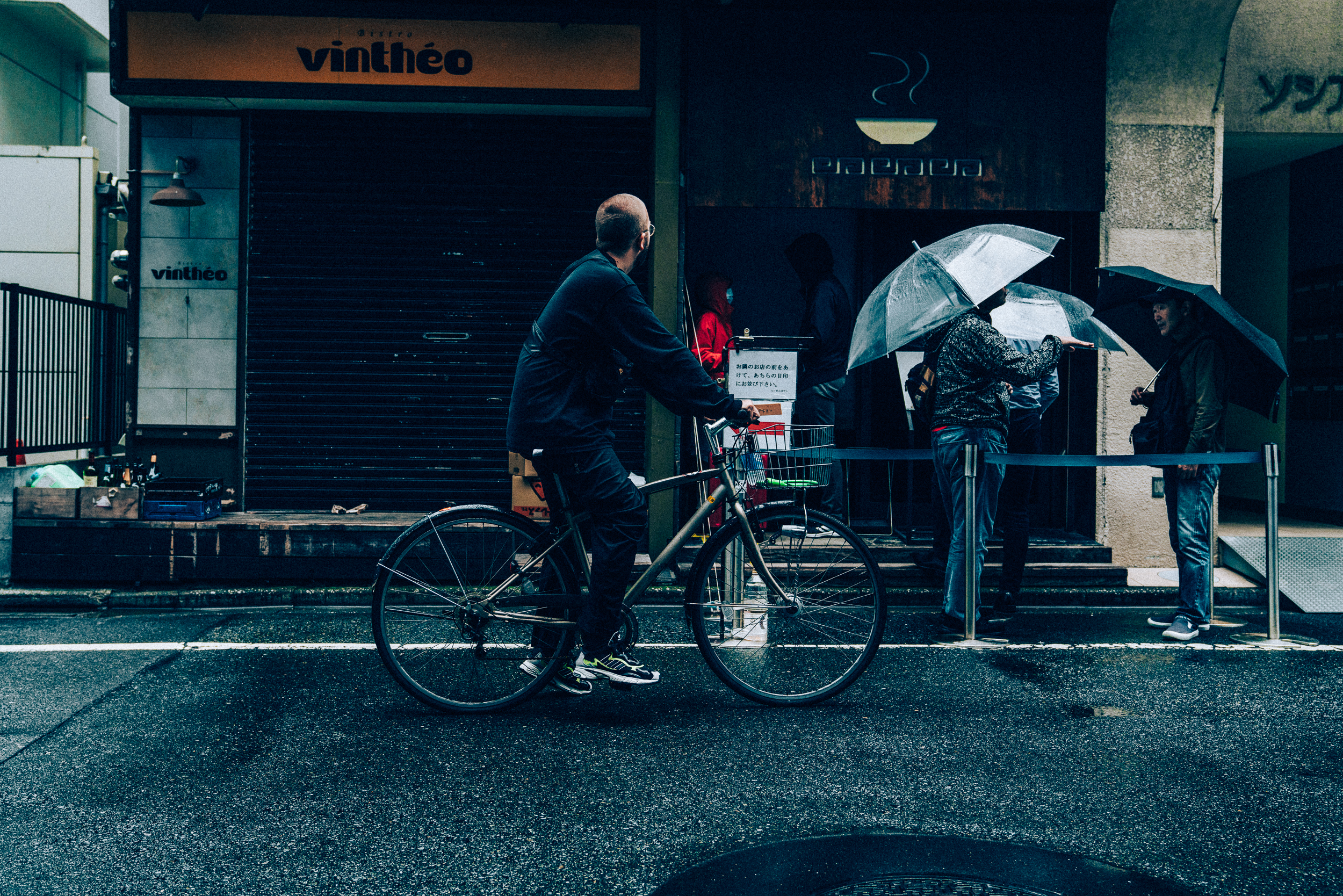
Can you tell us how a normal Bianco-day looks like in Tokyo?
AB: A normal Bianco-day in Tokyo is hard to explain because usually I work. I work in trend-research so all I do is meet with young people, young creatives, designers, streetwear-kids and also other people. It depends on the research we are doing so I talk with people all day. I take my bike, eat some ramen, meet friends at night. Everyday is the same – and everyday is different.
When you’re getting up in the morning and go outside, how do you decide what to wear?
AB: Recently when I choose my sneakers it had a lot to do with comfort. Of course I always take way too much care about how things look even though I go with a basic look but having a comfy is just fucking important. I’m driving my bike around here all day, sweating like a crazy maniac on that bike so everything I wear needs to be kind of functional.
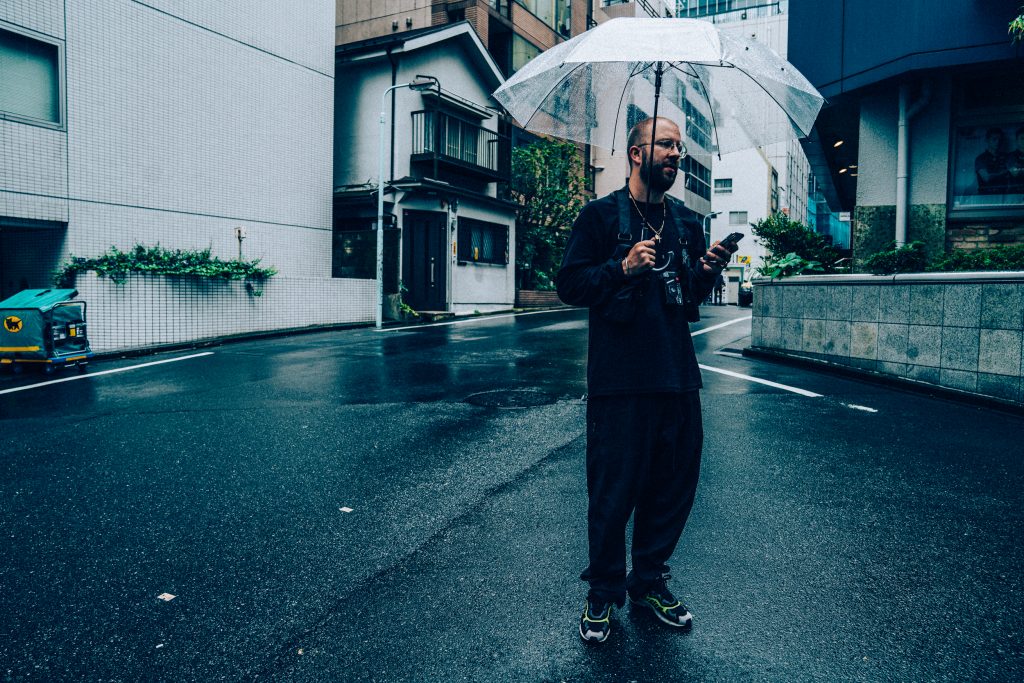
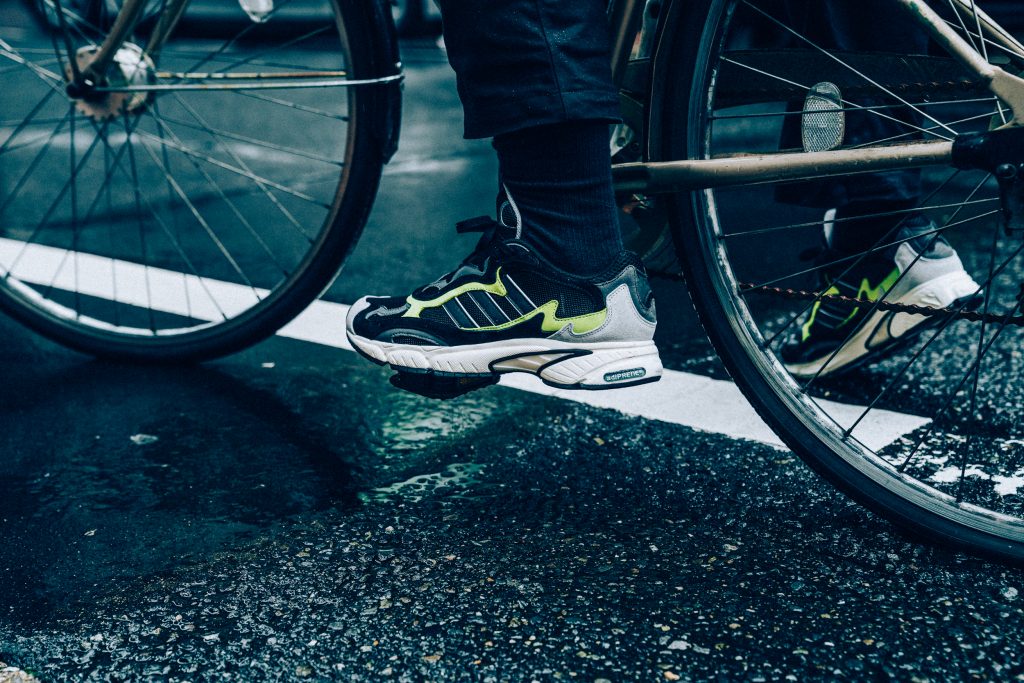
Can you tell us how your style has changed during the last few years?
AB: It changed a lot. It is changing all the time but right now it slowed down a bit. Last year I was again a little bit into hype and I think thats not even a bad thing but lately I’m trying to be way more simple. I’m wearing a black pants and black Uniqlo T-Shirt all the time. Of course I change sneakers now and then but I kinda don’t have the need right now to buy that much and to flex that much (even though I’m quite good at that). So I’m trying to keep it simple and of course I’m still having some new sneaker now and then.
So this means you used to buy a lot of clothes before. What are you gonna do with all your clothes you still have in Berlin?
AB: Yeah, since I’m moving to Tokyo and my square meters will go down from a big ass flat to a small cabin with a bed inside I had to sell or give away a lot. What I did is: I had like 90 pairs of general releases, that I really liked, but why should I bring 90 pairs to Tokyo? And it is kind of pain in the ass to sell them on eBay because you rather get 40 to 60 Euro, which is such a hustle – so I gave them to a charity organization and people in need. There were some really good sneakers and it makes me very happy to know that now there are people having nice sneakers on their feet, wherever it is.
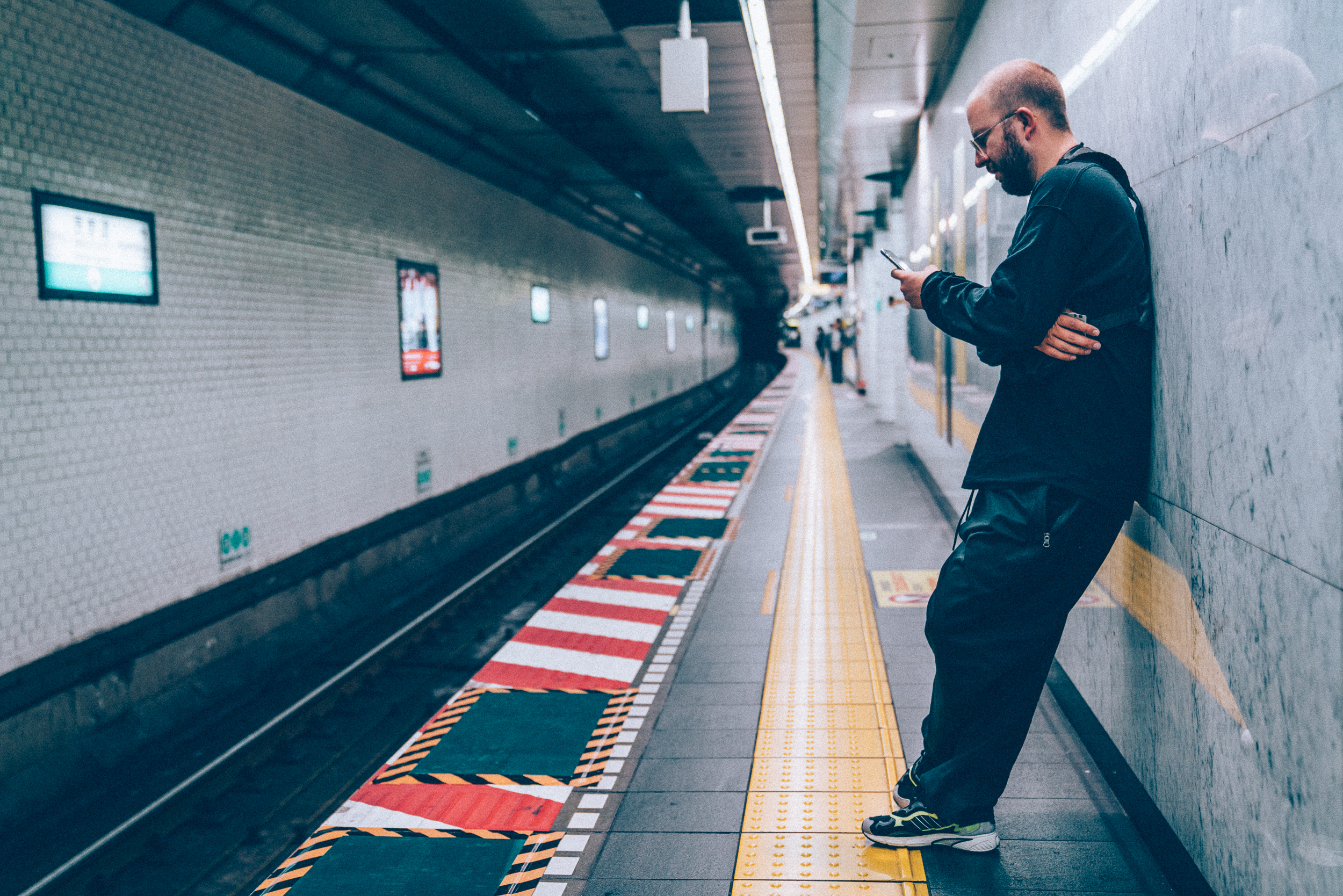
How many pairs of shoes did you bring to Japan?
AB: I am actually planning to bring 10 pairs to Tokyo and I still think about which exactly I am gonna choose. I already know that I tend to bring some collaborations but still it’s hard. Since I am gonna live in a small room I guess 10 pairs is a quite good amount and I’m pretty sure I will buy some more sneakers once I am here but right know I am super happy with wearing just a small amount of sneakers – it’s totally fine.
What does streetwear and Tokyo have in common for you?
AB: One of the reasons to come here were fashion, shoes and sneakers. What’s however different to my life in Berlin or Munich is that for the first time ever I wasn’t just a consumer of street culture, I’m becoming a part of the street culture scene here in Tokyo. So in contrast to just buying shoes, a jacket or attending a store party I’m hanging out with people that take part in this culture. Clothing and sneakers become less and less important for me and it’s rather more about joining this movement of youth and creativity. It sounds super cheesy but Japan is for me like a vivid playground of street culture and that’s why I’m here.
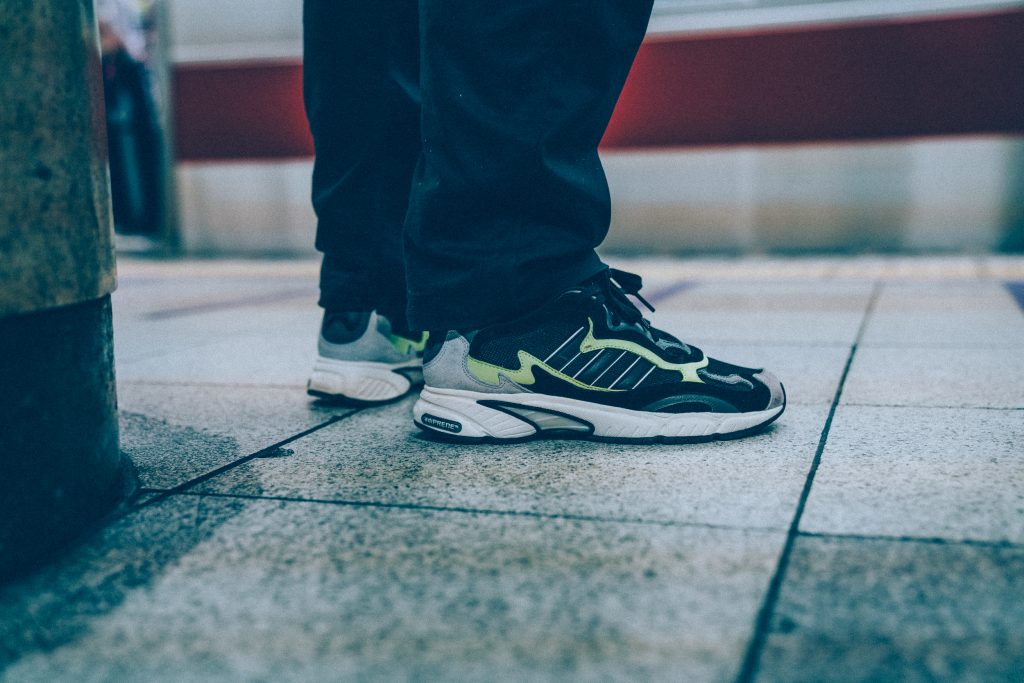
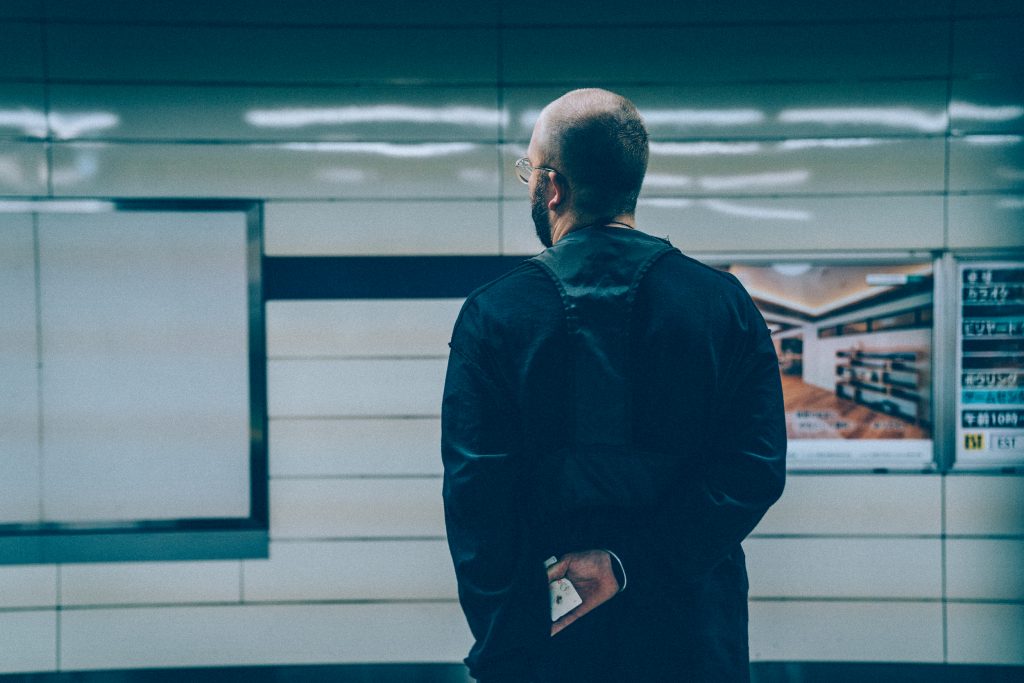
Do you buy more clothes here than in Berlin?
AB: Actually right now I’m living in this heaven of having the accessibility of all brands around me. The reason I moved here is to take part in this culture without having to buy products, have the newest sneakers or the newest jacket. I’m part of this streetwear scene and see all these artists, all this creativity and products getting less important. It’s more about the people you meet and the experience you make within the scene. It’s not me getting old and becoming an OG, it’s even more me enjoying the scene and I realized you don’t really need the newest shit for that. You just need a good surrounding and a good crew.
Where does the most of your money go? Food or fashion?
AB: Most of my money I actually spend on food. As I said before I don’t really spend money on clothes anymore and of course I sometimes get stuff for free – Thanks for that. I spend everything on food and kind of lifestyle things. I love to go out with friends and eat with them and recently I love to travel even though I’m always staying at airbnbs. Sometimes I go to a hotel, when I need some more cozy vibes, so everything I earn mostly goes into my belly. That was also a reason I had to buy a bike in Tokyo, because to much money went into my belly and my belly went out – so I had to cycle it back in. In Japan, expecially in Tokyo, there are two worlds – that’s what I love about this city. At first there is this restless never ending, never sleeping part in Shibuya, which of course looks nice but I think it just looks nice the first time you see it. If you have been there one week or two you realize all the lights, all the billboards, this is where I want to be, but to be quite honest, this is not Japan for me and I think a lot of people coming back from Tokyo telling their friends about Tokyo but actually they are just telling them about Shibuya and Harajuku. So what I love about Tokyo is all the small neighborhoods around like Koenji, I love everything that is way more local. I love small streets, going into a restaurant where people be like „What is this big, tall, white ass dude doing in here?“ – so the real magic is outside of all the lights. If you follow my guides you will see I am gonna send you through the whole Tokyo map and if you really wanna do a Bianco-food tour, you have to go to local places and meet local faces.
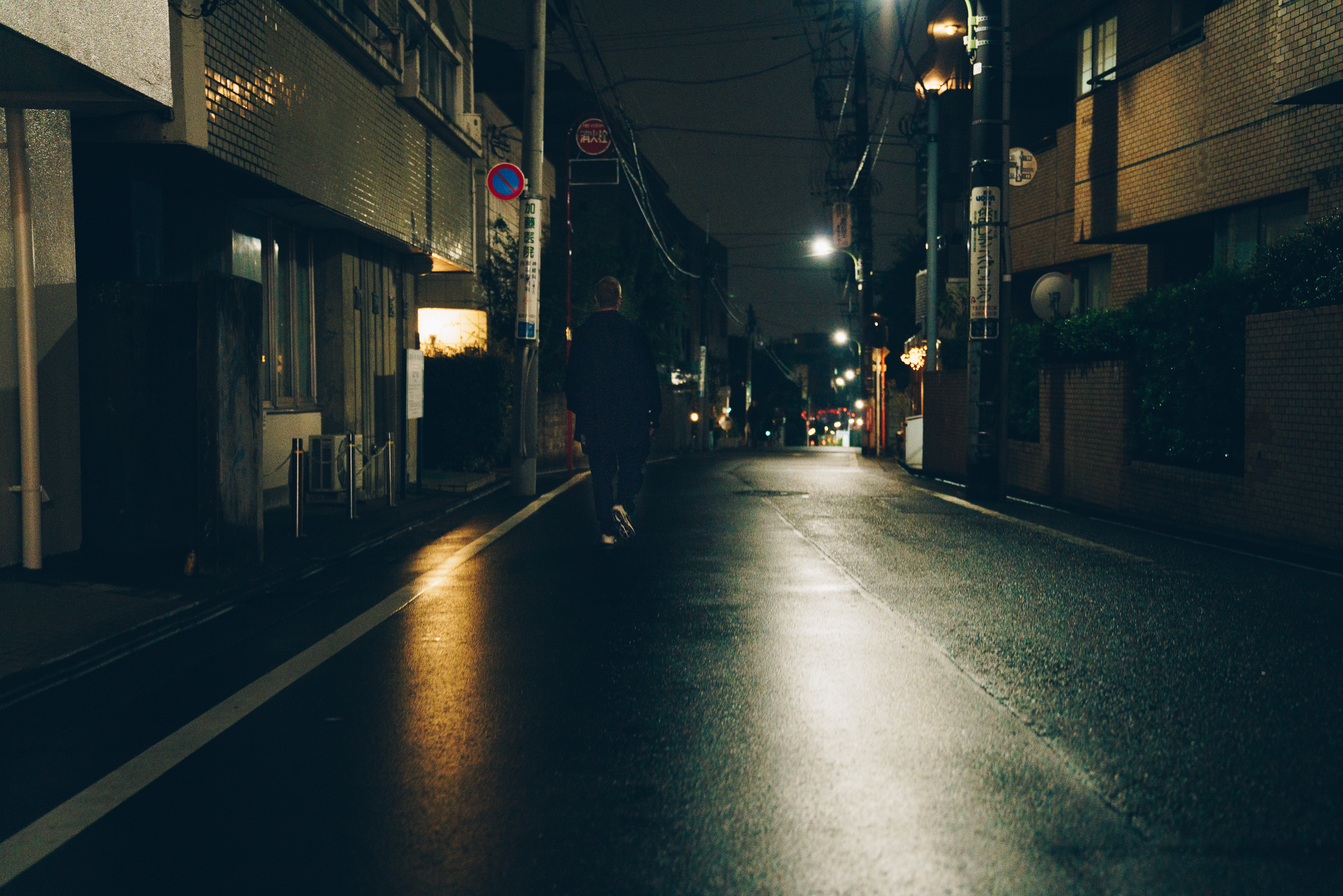
Domo agrigatou, Adrian. We wish you only the best for your next steps here in Tokyo.
